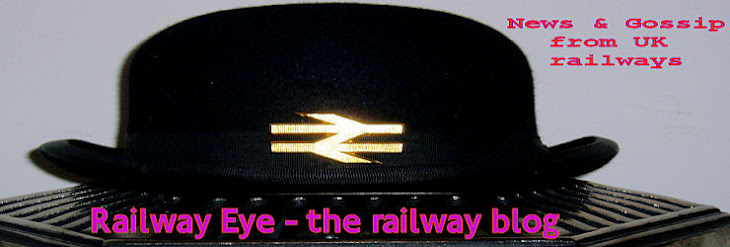Nearly 200 rail transport regulations have today been placed on the Red Tape Challenge website – a Government-wide site aimed at reducing bureaucracy. They will remain there for consultation for four weeks. The Challenge asks everyone whether they think that a regulation is well designed and provides vital protection or is badly designed, badly implemented or simply a bad idea.
Among the regulations that the Government is asking the public to comment on are the National Rail Conditions of Carriage – the terms and conditions passengers must adhere to when travelling on a train.
Other examples include the requirement for the Secretary of State to approve train operations on all sections of a line, the speed of those operations and a variety of other conditions for tramways and other minor railways including heritage operations.
The review also targets a number of arcane and obsolete regulations on the statute books that could run the risk of eroding public confidence in regulations. For example, there are regulations in force covering closures on railway lines which no longer exist and various exemption orders which have expired.
Theresa Villiers said:
“We want everyone - including passengers, businesses and volunteer groups - to get involved and help reduce the number of badly thought out and obsolete regulations in our country.
“The Red Tape Challenge is an ideal opportunity to consider innovative ways of delivering better rail services. We are already working on delivering less prescriptive rail franchises and taking forward reforms to help the rail industry to reduce costs.
“By reducing red tape, we can also free businesses to compete, create jobs and unleash a private sector-led recovery.”
Business and Enterprise Minister Mark Prisk said:
"Since the Red Tape Challenge was launched in April, we have received more than 25,000 comments and proposals made by the public and businesses. Already this has resulted in plans for significant changes to legislation – we have looked at 378 pieces of regulation and announced plans to remove or simplify 220 of these.
"I look forward to seeing the results of the 200 rail transport regulations under the spotlight. This process can only result in a more efficient rail network, which will be good news for all rail users and growth in the wider economy."
Experienced ‘Sector Champions’ will provide expert knowledge on the issues faced by those on the shop floor during the Red Tape Challenge.
Graham Smith, Secretary of the Rail Delivery Group said:
“An expanding railway also has to be an efficient railway. The rail industry is tackling a range of initiatives that will increase efficiency and improve value for money for the passenger, freight shipper and taxpayer that will unlock further growth in rail use.
“Many of the barriers to that greater efficiency can be found in the bureaucracy, red tape and regulations that delay, or even prevent, improvements to Britain’s railways. Removing the bureaucracy, discarding the red tape and scrapping unnecessary regulations will help the rail industry to provide an even better service to its customers.”
David Morgan and Mark Smith of the Heritage Railway Association said:
"The Heritage Railway Association fully understands that regulation is as essential for us as for any sector of the industry. Our challenge will be to identify that which is appropriate for our operations and retain it whilst the inappropriate, unnecessary and redundant is dismantled."
The overall aim is to remove barriers to economic growth and increase individual freedoms. The presumption is that regulations will go, unless it can be justified why a regulation should be kept.
- ENDS -



















